Strong bones and joints not only help the body move and stand upright, but also help protect delicate internal organs and provide important minerals such as calcium and phosphorus when the body needs them for other uses.
Starting in your 40s, these important structures begin to lose mass as your body stops replacing old bone. This gradual loss can affect your mobility and increase your risk of osteoporosis.
1. Milk - a great source of calcium for bones
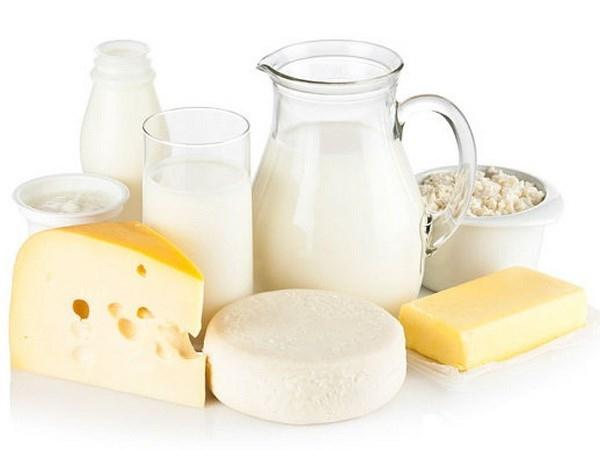
Dairy products such as yogurt, cheese... contain a lot of calcium, the main nutrient that contributes to bone strength and structure.
Dairy products like yogurt and cheese are high in calcium, a key nutrient that contributes to bone strength and structure. According to the USDA nutrient estimates, nonfat milk and nonfat plain Greek yogurt are both excellent sources of calcium.
2. Nuts provide magnesium and phosphorus to help strengthen bones.
Many nuts contain some calcium, but they also provide two other nutrients essential for bone health: magnesium and phosphorus. Magnesium helps absorb and retain calcium in the bones. Meanwhile, phosphorus is an important component of bones, with about 85% of the body's phosphorus found in bones and teeth.
There are many nuts to choose from such as cashews, walnuts, peanuts, pecans, almonds are always a good choice, for example a small handful of almonds are rich in magnesium and phosphorus.
Seeds like chia seeds, flax seeds, pumpkin seeds, and sesame seeds are just a few great seeds to add to your diet, but many others have health benefits as well. Note, to get the most out of the omega-3s in chia and flax seeds, grind them into a nut milk.
3. Cruciferous vegetables are rich in nutrients that help strengthen bones.
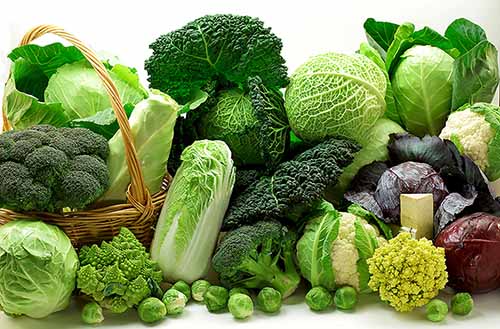
Cruciferous vegetables are rich in vitamin K and calcium which play a role in strengthening bone health.
A type of green leafy vegetable known as cruciferous vegetables provides several nutrients that support bone health, such as vitamin K and calcium, which play a role in strengthening bones.
Vitamin K works in tandem with calcium to help build healthy bones. Furthermore, vitamin K deficiency has been linked to osteoporosis and bone fractures, according to reviews.
Cruciferous vegetables include arugula, turnip greens, kale, cabbage, and broccoli. One cup of cooked kale is a good source of vitamin K, calcium, and vitamin A, which are good for bones. Broccoli is also a good source of vitamin K, vitamin A, calcium, and magnesium, which help keep bones strong.
4. Beans are a good food for bones.
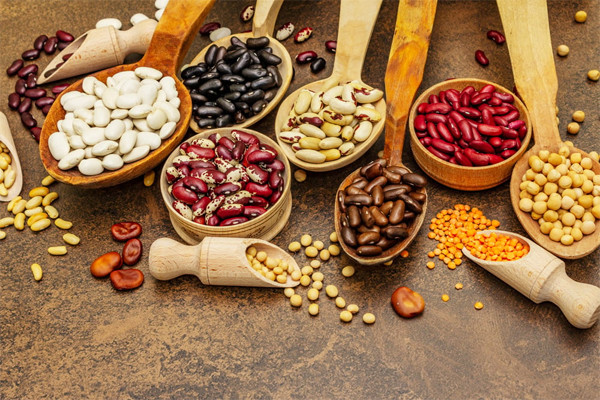
Black beans, pinto beans, kidney beans... all provide a lot of nutrients to help strengthen bones.
All types of beans such as black beans, pinto beans, and kidney beans provide a lot of nutrients that help strengthen bones such as magnesium, calcium, and phosphorus.
Additionally, beans are high in fiber and protein, which can be helpful for people on a plant-based diet who are not getting enough calcium. Adults should get between 1,000 and 1,300 mg of calcium per day, depending on their gender and age (take supplements as directed by your doctor).
Plant foods like beans can help meet your calcium goals and provide additional nutrients. One cup of black beans provides 84 mg of calcium, and they are also a good source of plant protein, magnesium, phosphorus, and fiber.
5. Fatty fish provides vitamin D for healthy bones
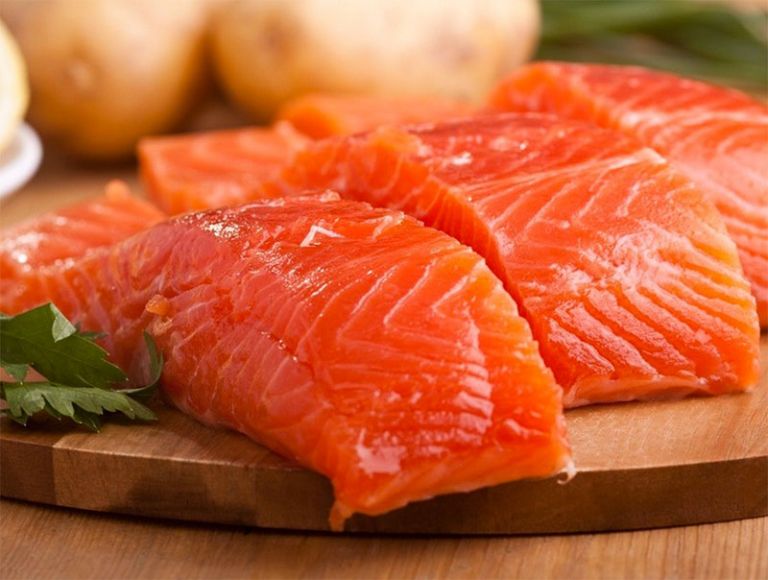
Salmon is one of the best fatty fish sources of vitamin D.
Fatty fish such as salmon, tuna, and trout provide a number of vitamins, including vitamin D. Fatty fish is one of the best food sources of vitamin D, about 30g of fresh smoked tuna is a rich source of vitamin D. Vitamin D is fat-soluble and plays an important role in bone growth and regeneration. Specifically, one of the effects of vitamin D is to help the intestines absorb calcium.
Exposure to sunlight can stimulate vitamin D production, but this depends on individual skin type and geographic location. There are also concerns that too much sun exposure increases the risk of skin cancer, so it is important to focus on food choices to get enough vitamin D.
6. Fortified juices, calcium-rich whole grains
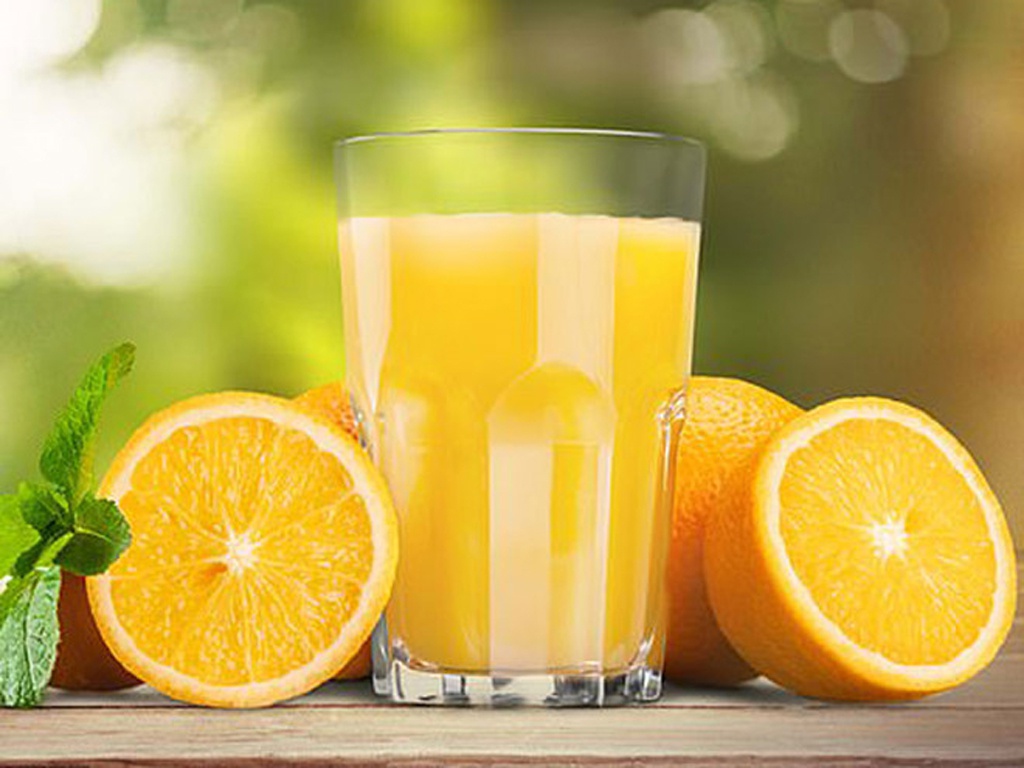
Calcium-fortified orange juice is an excellent source of calcium and vitamin D.
If you are intolerant to milk, you can supplement it by using foods fortified with calcium and vitamin D. Fortified foods such as cereals and juices provide high amounts of calcium. A cup of cereal provides good calcium and vitamin D; an 8-ounce glass of calcium-fortified orange juice is an excellent source of calcium and vitamin D.
Source: https://giadinh.suckhoedoisong.vn/6-loai-thuc-pham-giup-xuong-chac-khoe-cho-do-tuoi-40-172240520162211951.htm
























































![[Maritime News] Container shipping faces overcapacity that will last until 2028](https://vphoto.vietnam.vn/thumb/402x226/vietnam/resource/IMAGE/2025/7/30/6d35cbc6b0f643fd97f8aa2e9bc87aea)













































Comment (0)